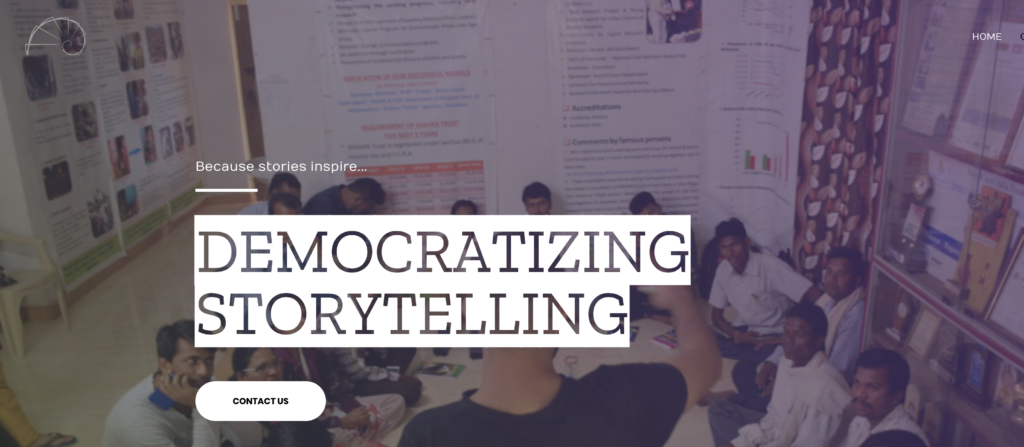Paridrishya

Paridrishya trains grassroots groups throughout India to become self-sufficient in visual storytelling. The organization began conducting visual storytelling workshops across India in 2019. To date, 317 people have attended workshops in 29 completed workshops in India.
For more information, visit https://paridrishya.org
Reimagining the Movement to End Gender Violence
Every emerging movement needs the power of storytelling. Reimagining the Movement to End Gender Violence focuses on changing social conditions and structural inequalities that create and deepen gender violence and that make people vulnerable to violence. Reimagining recognizes the links between all forms of violence that punish gender non-conforming behavior including intimate partner violence as well as homophobic violence. The act of reimagination calls for:
- Reinvesting resources in people and communities
- Stopping economic policies, immigration policies, and law enforcement policies that sustain and deepen violence
- Replacing the current crime-centered approach to gender violence
- Strengthening the capacity of communities to respond to gender violence
“One of the huge challenges that stands in the way of reimagining the movement to end gender violence is what is entrenched.”
“There isn’t enough attention to the systemic ways in which Black women are subjected to both state violence and intimate violence.”
“The first responders to a violent situation are usually friends, family, community members, and clergy. … Why aren’t we doing more to equip them with the knowledge and the skills to be able to intervene effectively?”
“Reimagining the movement to end gender violence means focusing on reinvesting in people”
“I have been looking at [conferencing] groups for men who have committed domestic violence, whose families are involved with child welfare . . . What is important to them is to know that they are valuable in their family’s lives. To know that for their children to have better lives they need to change . . .”
The Reimagining Project grows most immediately out of the conference, Converge! Reimagining the Movement to End Gender Violence (held at the University of Miami School of Law, February, 2014), but the roots of this conversation are much older and are profoundly shaped by the ground breaking work of INCITE! Women, Gender Non-Conforming and Trans People of Color Against Violence.
Converge! conference participants answered a call to reimagine U.S. priorities in funding, activism, legal responses, and social services in ways that better address structural inequalities that create and maintain gender violence. The Converge! conversation crossed boundaries of activism and research: organizing campaigns with domestic workers, sex workers, and farm workers; mobilizing to stop police harassment of LGBT youth; advocating for immigrant rights; calling for prison abolition; calling for racial and gender justice within in the criminal system; establishing international human rights norms in domestic settings; highlighting and demanding accountability for campus sexual assault; training and encouraging men to oppose violence against women; working on behalf of those subjected to domestic violence/intimate partner violence and sexual assault. Recognizing the connections between these movements and working to create a common political agenda was central to the Converge! conversation.
Our ongoing collaboration with mediaforchange.org is focused on using digital media to share and engage with a wider audience (beyond people directly involved in shaping the movement) the evolving story of the Reimagining Project.





